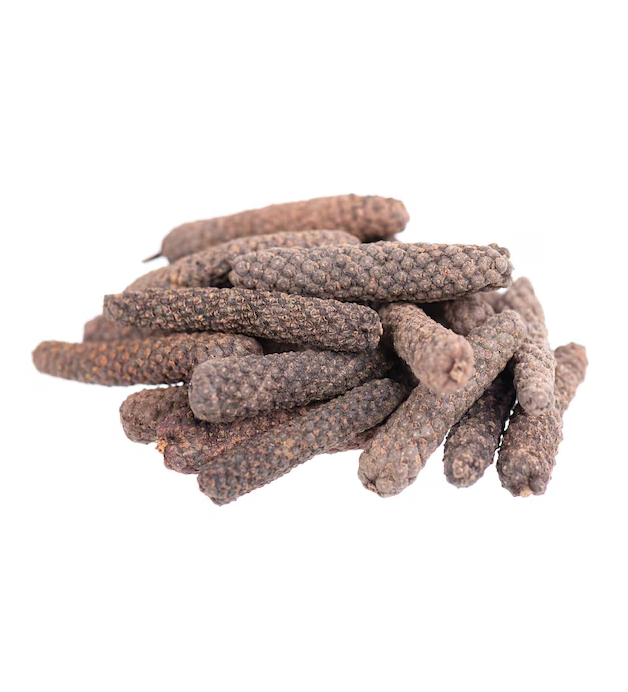Long pepper (Piper longum), also known as Indian long pepper, is a unique and aromatic spice derived from the dried fruit of a flowering vine native to India and Southeast Asia. It is closely related to black pepper but has a more complex flavor profile, combining earthy, spicy, and slightly sweet notes with a subtle hint of heat. Long pepper is characterized by its elongated, cylindrical shape, resembling tiny catkins, and is typically used whole or ground in various dishes. It is an essential ingredient in traditional Indian, Indonesian, and Middle Eastern cuisines, often used to enhance curries, soups, pickles, and spice blends.
In addition to its culinary appeal, long pepper has been highly regarded in traditional medicine systems like Ayurveda, Unani, and Traditional Chinese Medicine for its therapeutic properties. It is known to aid digestion, boost metabolism, and improve respiratory health. Long pepper contains active compounds like piperine, which exhibit anti-inflammatory, antimicrobial, and antioxidant properties. It has been used to treat ailments such as colds, coughs, asthma, and arthritis. Its warming nature makes it beneficial in balancing the body's energies and stimulating circulation. Long pepper's rich flavor and medicinal value make it a treasured spice with a long history of use in both kitchens and apothecaries.
